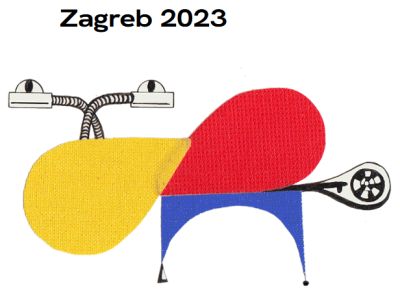Degrowth from the East

A group of Community Economies Research Network (CERN) members and close colleagues organised two sessions on ‘Degrowth from the East’ at the 9th International Degrowth conference in Zagreb, Croatia, 28th August to 2nd September.
The conference event coincided with a broader Zagreb Degrowth Week, a free festival with keynote talks, panels, workshops and cultural events open to the public.
The CERN sessions focused on questions such as: In what ways are countries of post-socialist Central and Eastern Europe lively sites of postcapitalist alternatives, not just (semi-)peripheral fodder for extractive capitalism? What community economies and degrowth practices already exist, can be learned from, and brought together? What distinctive cultures and traditions in CEE regions can be built upon for navigating degrowth pathways?
To address these questions, the first session brought together four paper presentations. Markus Sattler (Leibniz Institute for Regional Geography, Leipzig) opened with a presentation on Sufficiency Possibilities in the Web of Life: A political economy of Armenian and Georgian eco-social enterprises. This was followed by Lilian Pungas (University of Jena) on Revaluing Estonian Dacha gardeners as subjects of and for a desired socio-ecological transformation. Ottavia Cima (University of Bern), Lucie Sovová (Wageningen University) and Markus Sattler then presented a collective work-in-progress paper on diverse economies and the East, on behalf of a group of CERN scholars – the Polička collective – interested in cultivating deeper engagement with Eastern European experiences in diverse economies scholarship. Finally, Eva Fraňková (Masaryk University) presented on her long-standing collaboration with Nadia Johanisova around eco-social enterprises and post-growth enterprise in the Czech Republic.
The second session was based on an outdoor World Café-style discussion with around thirty participants. The session started with framing input from Josef Patočka (inspired by Agnes Gagyi of the University of Gothenburg, Sweden, who couldn’t make it in person, but contributed valuable thoughts in writing nonetheless). Ondřej Kolínský (Czech Technical University) facilitated the session, with participants rotating between different ‘stations’ to discuss following questions:
- Which practices are potentially relevant for degrowth futures, but overlooked due to their association with the East?
- How can we cultivate a common language and common ground around degrowth in the East?
- How can we build bridges and alliances between degrowth and existing economic initiatives?
- How can we overcome narratives of ‘catch-up development’ in post-socialist Central and Eastern Europe ?
Alongside these CERN-organised session, diverse economies thinking and practice took a prominent place in proceedings, reappearing across a number of presentations and contributions.
Thomas Smith, Ludwig-Maximilians-Universität (LMU) München
